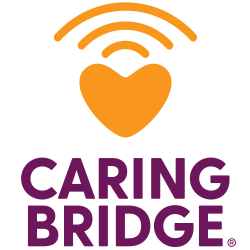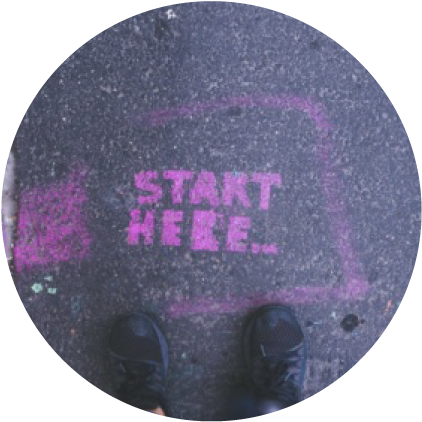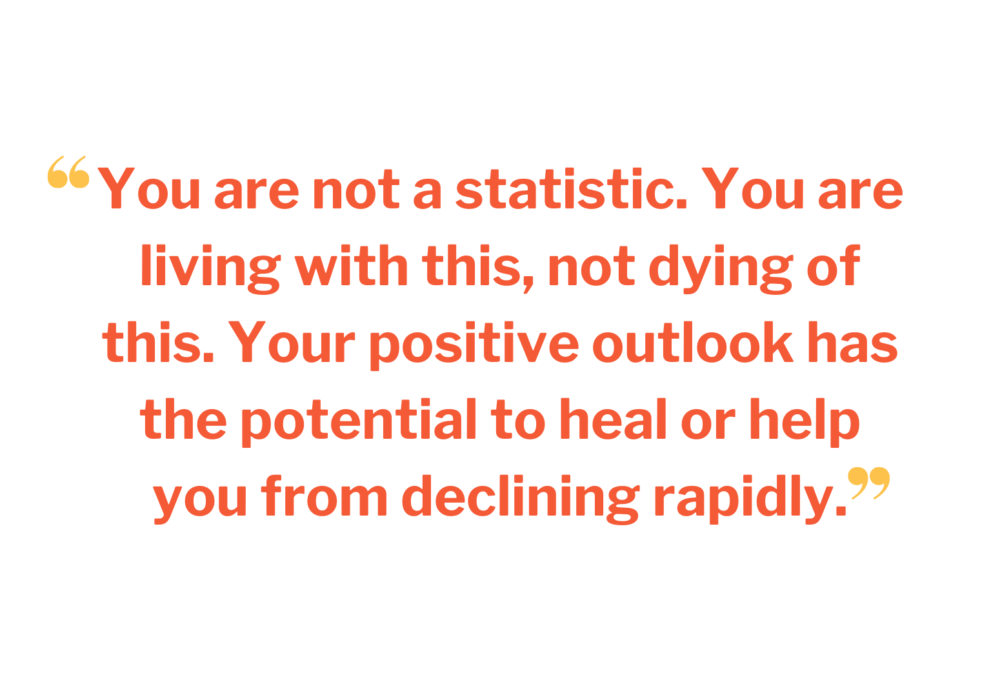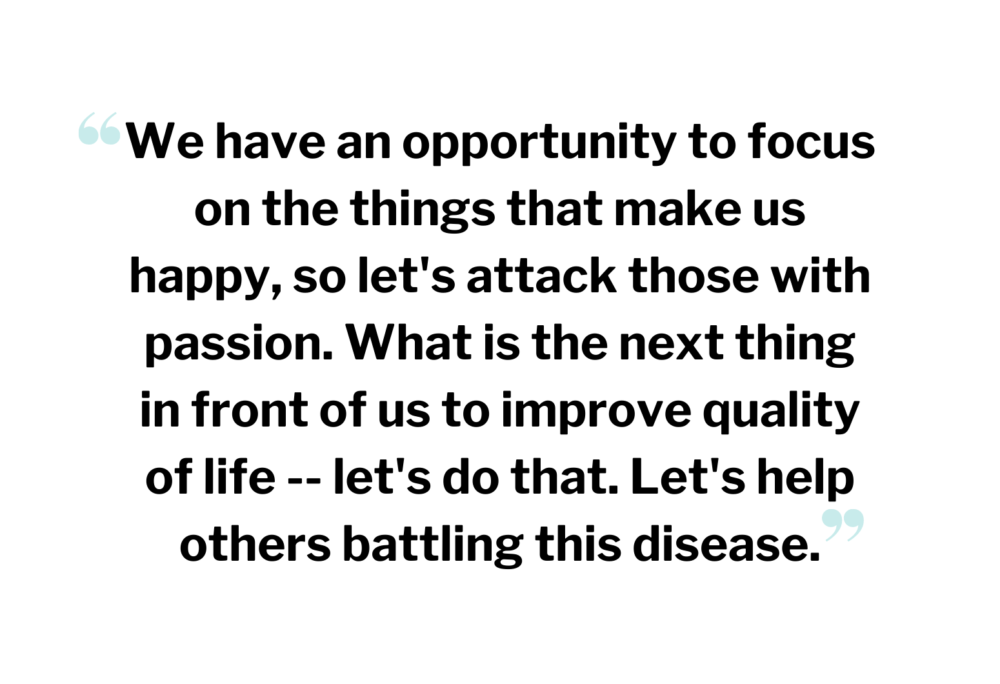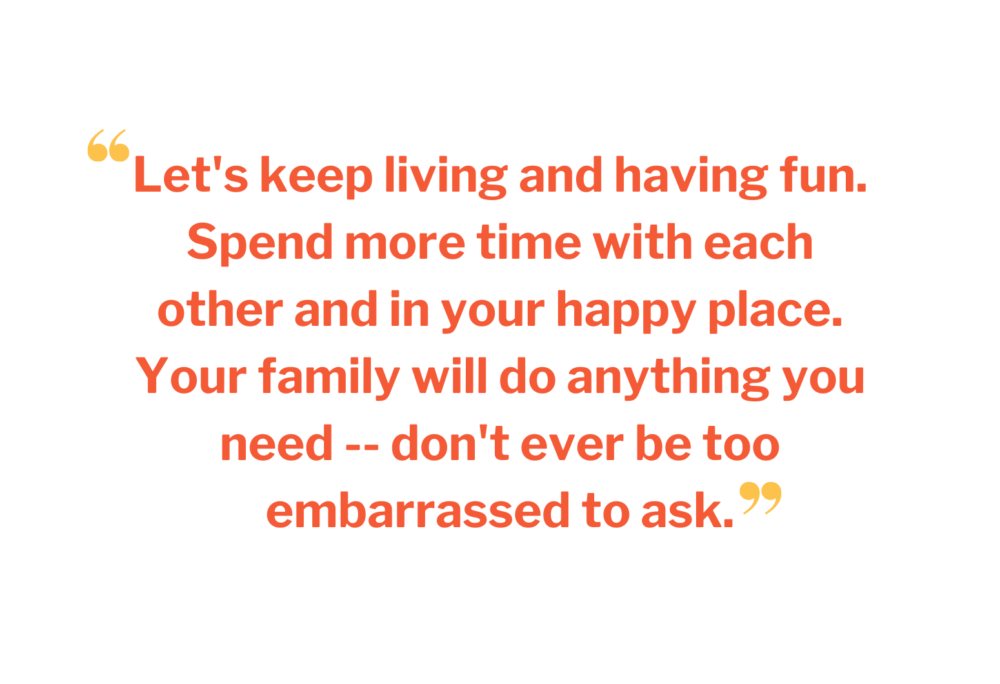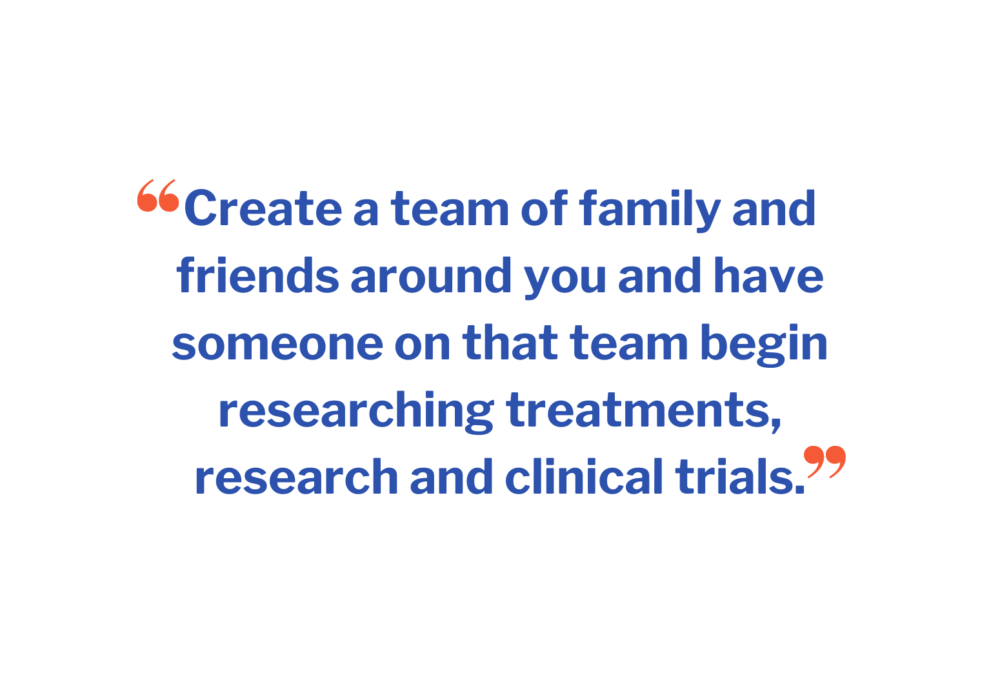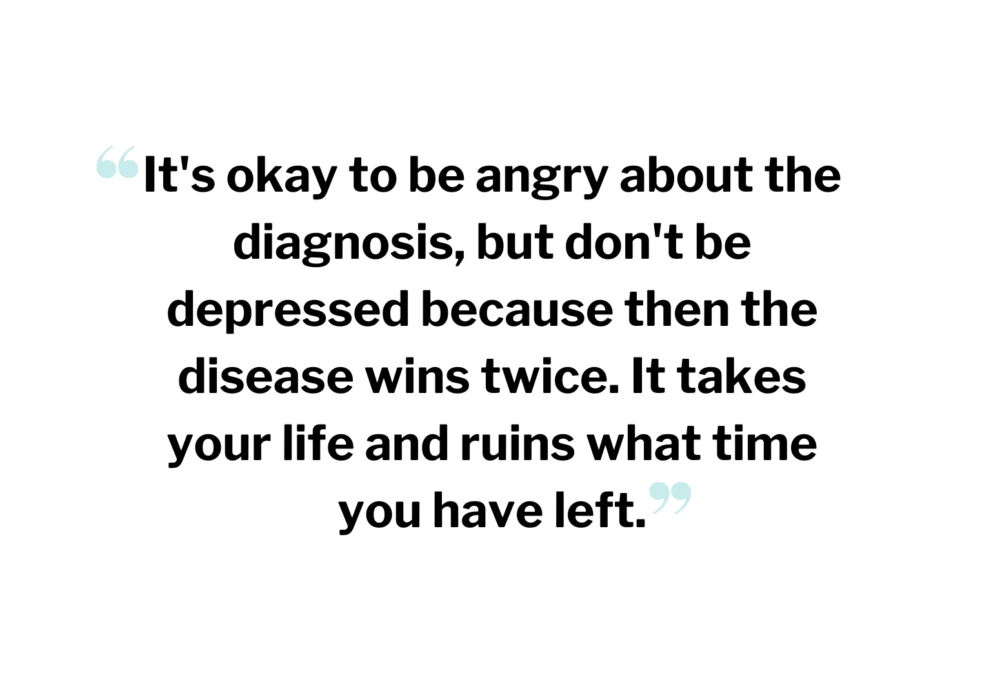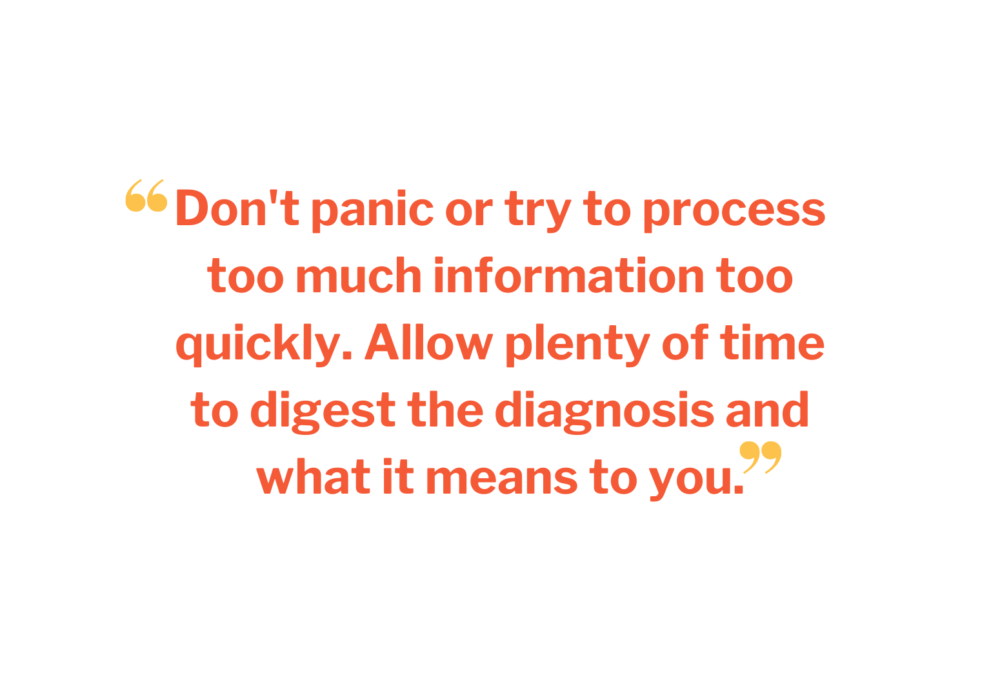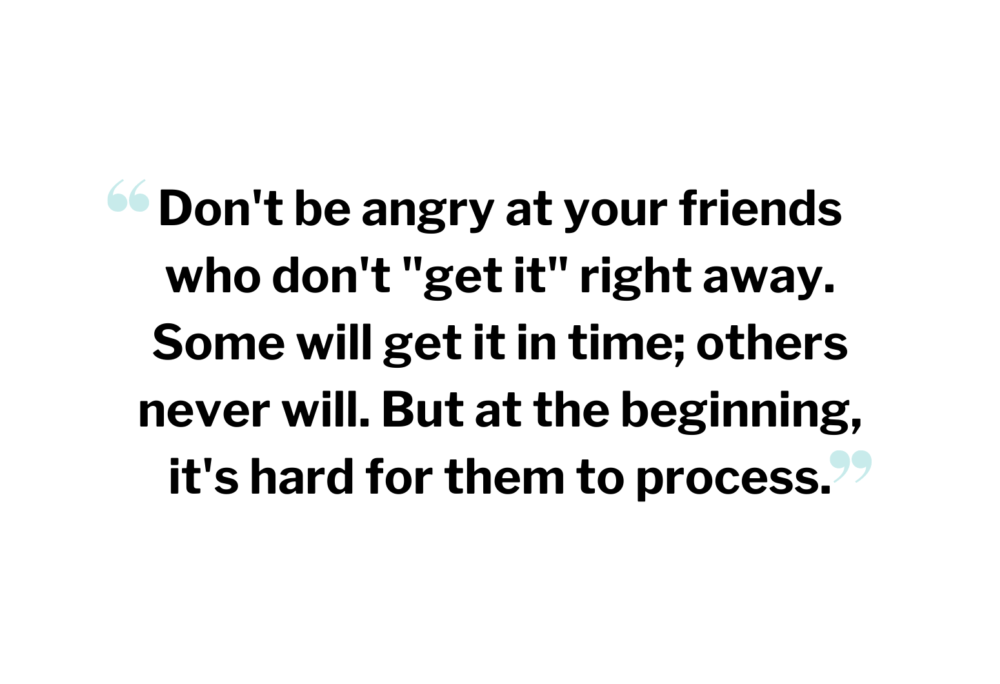Caring for someone with ALS is not easy. With so much to do and your loved one’s needs evolving over time, it can feel impossible to make time for yourself. Fortunately, research has shown us that caregivers who practice self-care are better equipped to cope. For this reason, we’ve created an easy guide to walk you through the basics of self-care and why it’s so important for caregivers!
Why practice self-care?
When someone you love is diagnosed with ALS, it can feel like your world’s axis has shifted. Your focus becomes taking care of your loved one, whether it is your partner, parent, another family member, or friend.
As the disease progresses, caring for your loved one can feel overwhelming and you may overlook your own needs. While understandable, doing so can lead to exhaustion, an inability to provide quality care, and even burnout (find more on “burnout” below). Practicing regular self-care is known to prevent and counter burnout. Self-care is the intentional actions you can take to maintain your physical, emotional, and mental health and is an important part of being a caregiver.
Your guide to self-care
Observe and acknowledge your needs
Sometimes the hardest thing is to acknowledge what we need. Take time to think about what you need to be happy. Journaling can be helpful in identifying your needs.
Communicate your needs and priorities
Share what you need and its importance to you with your partner, family, and friends so they can better support you. For example, if going for an hour-long walk every day is really important to you, discuss who can help you care for your loved one while you’re out.
Create and maintain a routine
A healthy routine should include plenty of rest, good nutrition, exercise, and a bit of downtime. Be sure to keep up with your own health and don’t put off going to your own doctor’s appointments. Remember: A routine is not a schedule. Allow yourself flexibility and be kind with yourself.
Lean on your team
Research has consistently found that strong support systems help reduce burden in caregivers of people with ALS (Pagnini et al., 2010). When things feel overwhelming, consider asking a friend or family member to help with errands or, if you feel comfortable, help caring for your loved one to give you a break (also known as respite care).
Practice mindfulness and gratitude
Developing a gratitude and mindfulness practice can help reduce stress, improve your sleep and more. Click here to read about a few ways to practice mindfulness every day.
Do something just for yourself
Examples: Go on a walk, read a book, have coffee with a friend, see a movie, go to yoga, get a massage or take a nap.
Coping as a caregiver
Caring for someone with ALS is not easy and there are many ways you might cope as a caregiver. Some people may feel the desire to engage in new activities such as ALS advocacy, while others may be too busy juggling numerous responsibilities to get through their day. There might be times when it feels too painful to witness your loved one’s decline and other times you can’t bear to be apart from them. You may even find yourself trying to control things in other areas of your life in order to make up for what you can’t control with your loved one’s ALS. Over time, your coping will likely change as you adapt into your role as a caregiver or as your loved one’s needs change. It’s okay if you feel hopeful one week and as though you’re barely making it through the next. Sometimes the best thing to do is take things one day at a time and remind yourself you’re doing your best.
Rallying your community
Support from friends and family can be a key resource for people diagnosed with ALS and their caregivers. From practical support, like trips to the store or help with housework, to simply having someone to talk to when life feels overwhelming, looking to your community can have a big impact on how you cope as a caregiver. That being said, the decision to share the details of your loved one’s ALS journey can be difficult. To help, a number of websites have been created for you to share health updates and organize support using customizable privacy settings.
The following are links to a few popular online platforms. Take time to explore what each has to offer and how it fits with your needs. Consider asking a trusted friend to help research or even co-manage your account!
What is burnout?
Burnout is an extreme form of exhaustion caused by prolonged stress and overwork. It’s common among people in helping professions but can impact anyone, especially caregivers. Burnout happens over time and can take you by surprise, so it’s important to know the signs and symptoms. For caregivers, this may be a lack of motivation, irritability, forgetfulness or a change in outlook. Difficulty staying focused and increased mistakes are also common and can negatively impact the care you are providing. Caregivers of people with ALS should also be mindful of the physical symptoms of burnout, like fatigue, poor endurance, and decreased strength (Krishnan, et al, 2017). If you notice these symptoms, consider talking with a mental health provider about ways to cope when caring for a loved one. Some ALS clinics will have a social worker able to provide direct support or referrals in your community. You can also contact our ALS Support Team to help find providers in your area.
Mental wellness
In caregivers, depression and anxiety have been linked with increased feelings of burden (Pagnini et al. 2010). Sadness and worry are normal when a loved one is diagnosed with ALS, but if they start to interfere with your daily life and responsibilities it may be time to seek outside support. Our response to any life-changing event is hard to predict and does not define who we are. The important thing to remember is when we feel better, we often perform better which can be especially important when caring for someone with ALS. Ask for help from your loved ones so you find time to support your wellness.
Resources
Krishnan, S., York, M. K., Backus, D., & Heyn, P. C. (2017). Coping With Caregiver Burnout When Caring for a Person With Neurodegenerative Disease: A Guide for Caregivers. Coping With Caregiver Burnout When Caring for a Person With Neurodegenerative Disease: A Guide for Caregivers, 98, 805–807.
Pagnini, F., Rossi, G., Lunetta, C., Banfi P., Castelnovo, G., Corbo, M. & Molinari, E. (2010). Burden, depression, and anxiety in caregivers of people with amyotrophic lateral sclerosis. Psychology, Health & Medicine, 15 (6), 685-693.

